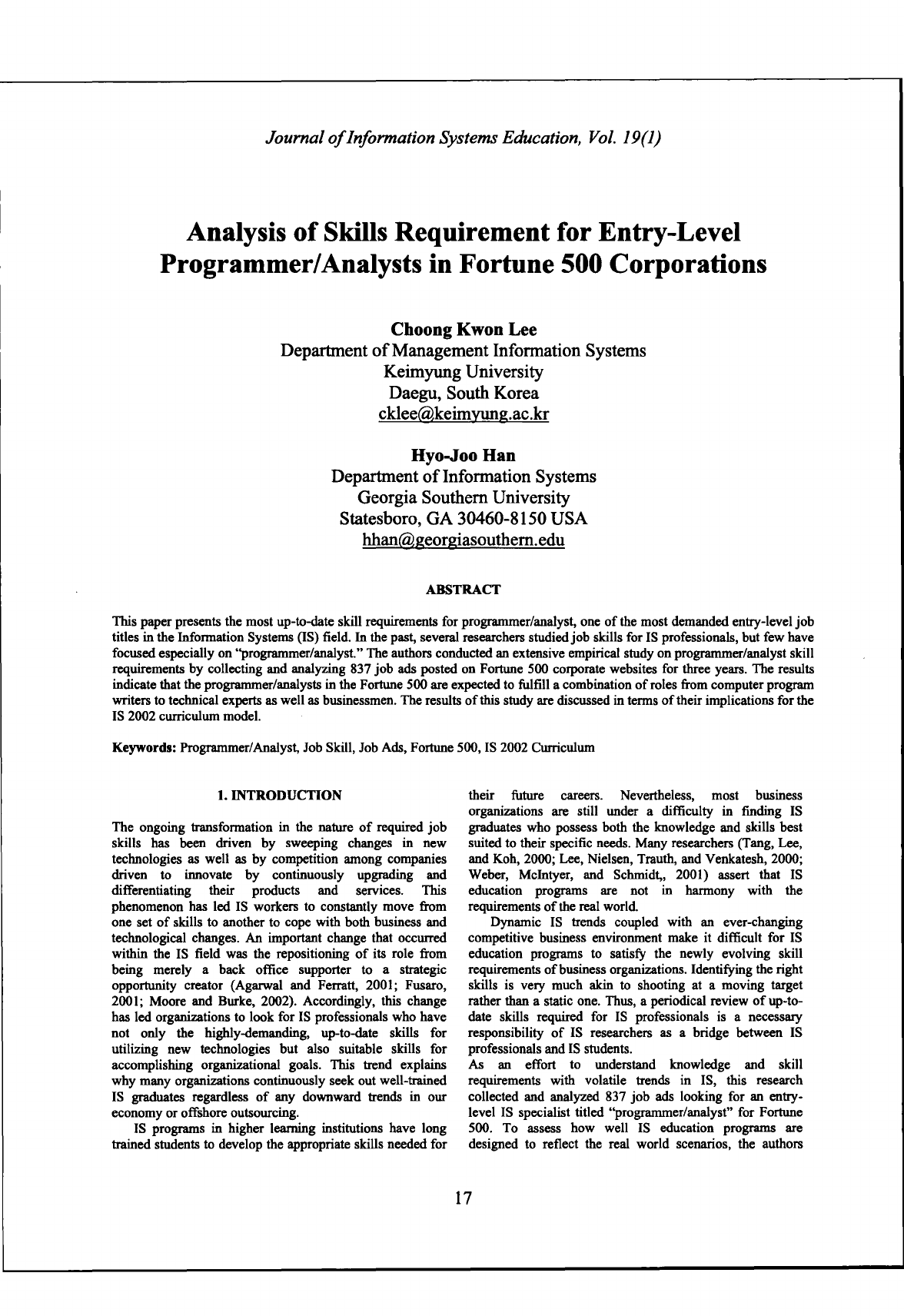
Reproduced with permission of the copyright owner. Further reproduction prohibited without permission.
Analysis of Skills Requirement for Entry-Level Programmer/Analysts in Fortune 500 Corporations
Lee, Choong Kwon;Han, Hyo-Joo
Journal of Information Systems Education; Spring 2008; 19, 1; Research Library
pg. 17
Journal
of
Information Systems Education,
Vol.
19(1)
Analysis
of
Skills Requirement for Entry-Level
Programmer/Analysts in Fortune 500 Corporations
Choong Kwon Lee
Department
of
Management Information Systems
Keimyung University
Daegu, South Korea
Hyo-Joo Han
Department
of
Information Systems
Georgia Southern University
Statesboro,
GA
30460-8150 USA
ABSTRACT
This paper presents the most up-to-date skill requirements for programmer/analyst, one
of
the most demanded entry-level job
titles in the Information Systems (IS) field.
In the past, several researchers studied job skills for
IS
professionals, but few have
focused especially on "programmer/analyst." The authors conducted an extensive empirical study on programmer/analyst skill
requirements by collecting and analyzing 837 job ads posted on Fortune 500 corporate websites for three years. The results
indicate that the programmer/analysts
in
the Fortune 500 are expected to fulfill a combination
of
roles from computer program
writers to technical experts as well as businessmen. The results
of
this study are discussed in terms
of
their implications for the
IS
2002 curriculum model.
Keywords: Programmer/Analyst, Job Skill, Job Ads, Fortune 500,
IS
2002 Curriculum
1. INTRODUCTION
The ongoing transformation in the nature
of
required job
skills has been driven by sweeping changes in new
technologies as well as by competition among companies
driven to innovate by continuously upgrading and
differentiating their products and services. This
phenomenon
has led
IS
workers to constantly move from
one set
of
skills to another to cope with both business and
technological changes. An important change that occurred
within the
IS
field was the repositioning
of
its role from
being merely a back office supporter to a strategic
opportunity creator (Agarwal and Ferratt, 2001; Fusaro,
2001; Moore and Burke, 2002). Accordingly, this change
has led organizations to look for
IS
professionals who have
not only the highly-demanding, up-to-date skills for
utilizing new technologies but also suitable skills for
accomplishing organizational goals. This trend explains
why many organizations continuously seek out well-trained
IS
graduates regardless
of
any downward trends in our
economy or offshore outsourcing.
IS
programs in higher learning institutions have long
trained students
to develop the appropriate skills needed for
their future careers. Nevertheless, most business
organizations are still under a difficulty in finding
IS
graduates who possess both the knowledge and skills best
suited to their specific needs. Many researchers (Tang, Lee,
and Koh, 2000; Lee, Nielsen, Trauth, and Venkatesh, 2000;
Weber, Mclntyer, and Schmidt,, 2001) assert that
IS
education programs are not
in
harmony with the
requirements
of
the real world.
Dynamic
IS
trends coupled with an ever-changing
competitive business environment make it difficult for
IS
education programs to satisfy the newly evolving skill
requirements
of
business organizations. Identifying the right
skills is very much
akin to shooting at a moving target
rather than a static one. Thus, a periodical review
of
up-to-
date skills required for
IS
professionals is a necessary
responsibility
of
IS
researchers as a bridge between
IS
professionals and
IS
students.
As an effort to understand knowledge and skill
requirements with volatile trends in IS, this research
collected and analyzed 837 job ads looking for an entry-
level
IS
specialist titled "programmer/analyst" for Fortune
500. To assess how well
IS
education programs are
designed to reflect the real world scenarios, the authors
17
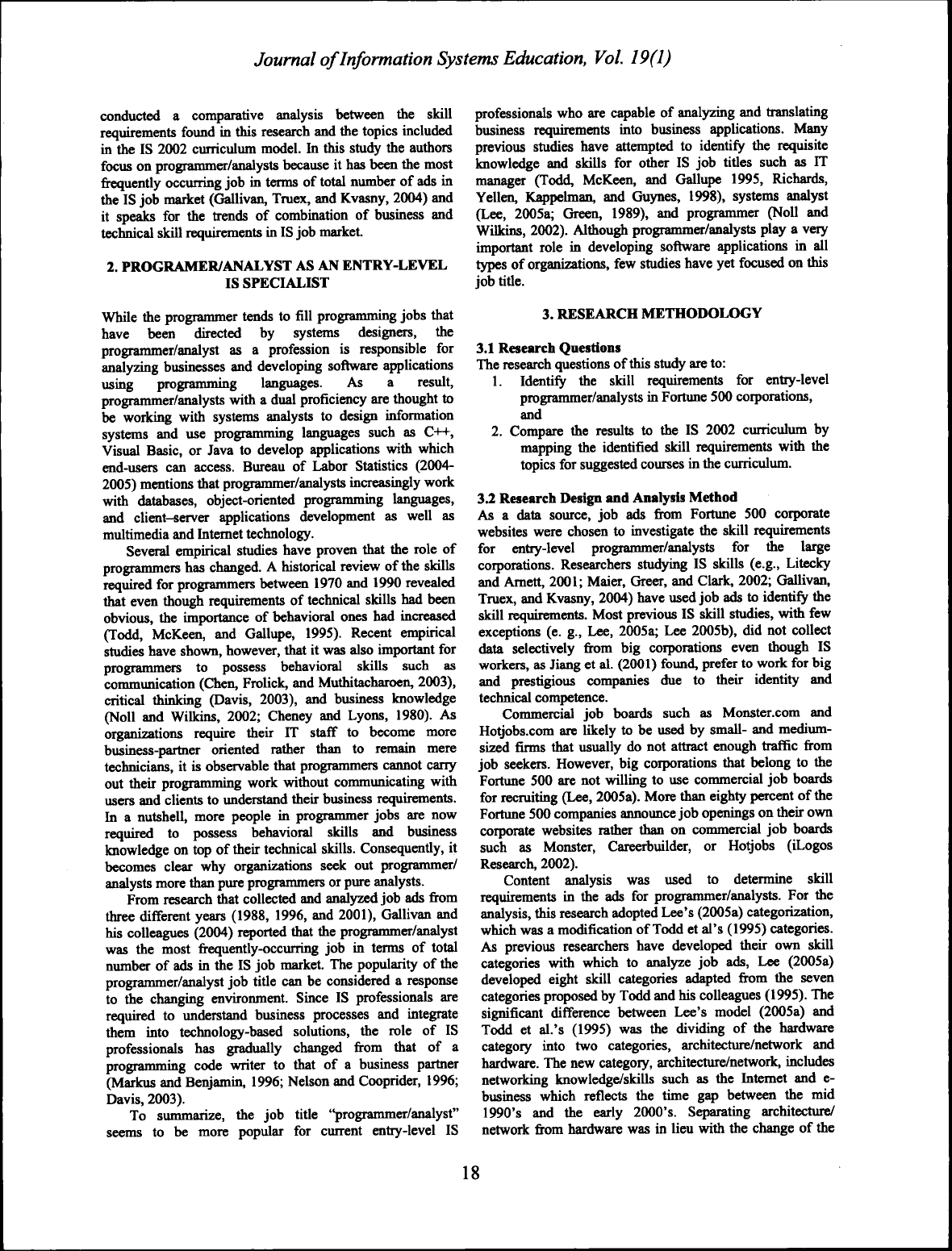
Reproduced with permission of the copyright owner. Further reproduction prohibited without permission.
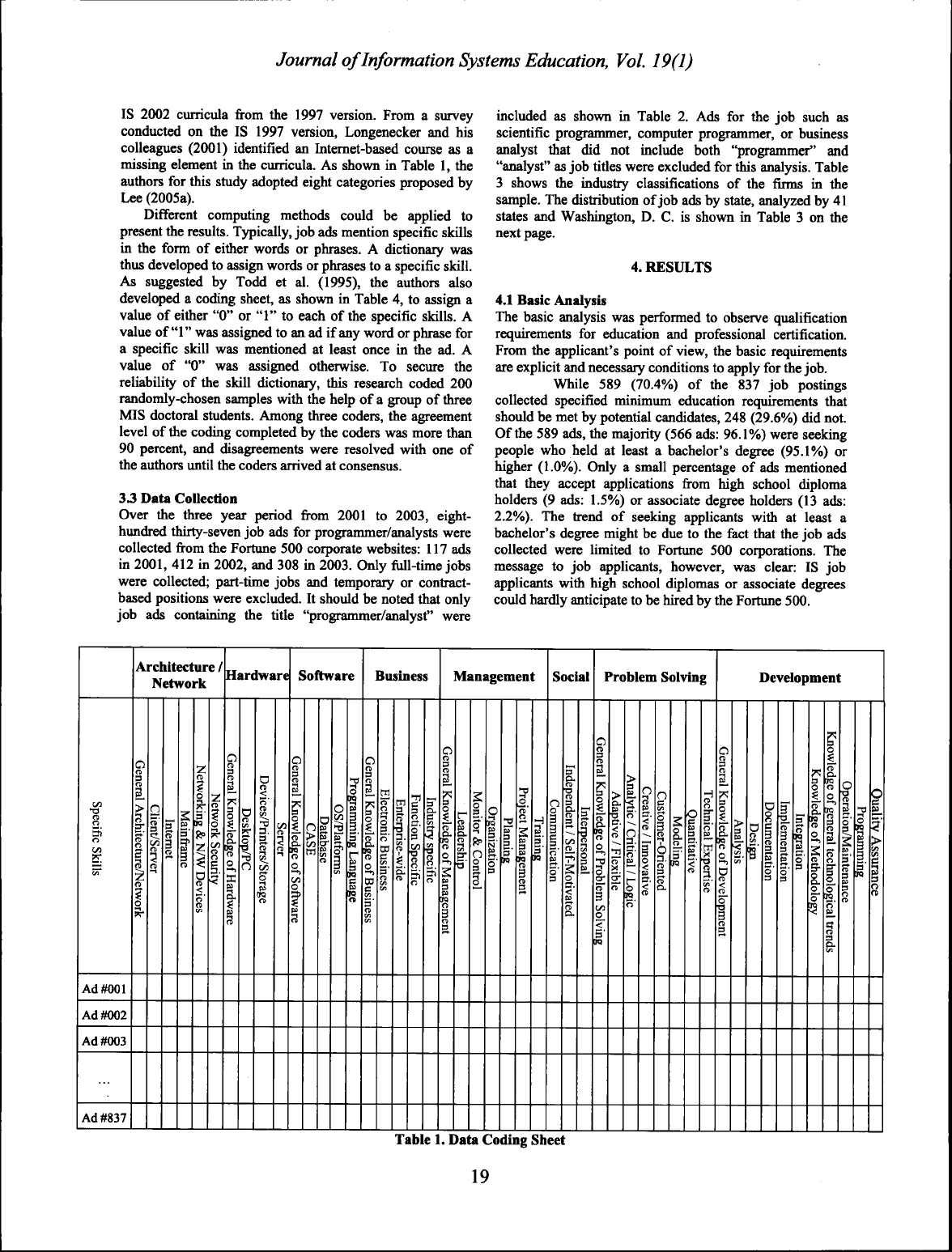
Reproduced with permission of the copyright owner. Further reproduction prohibited without permission.
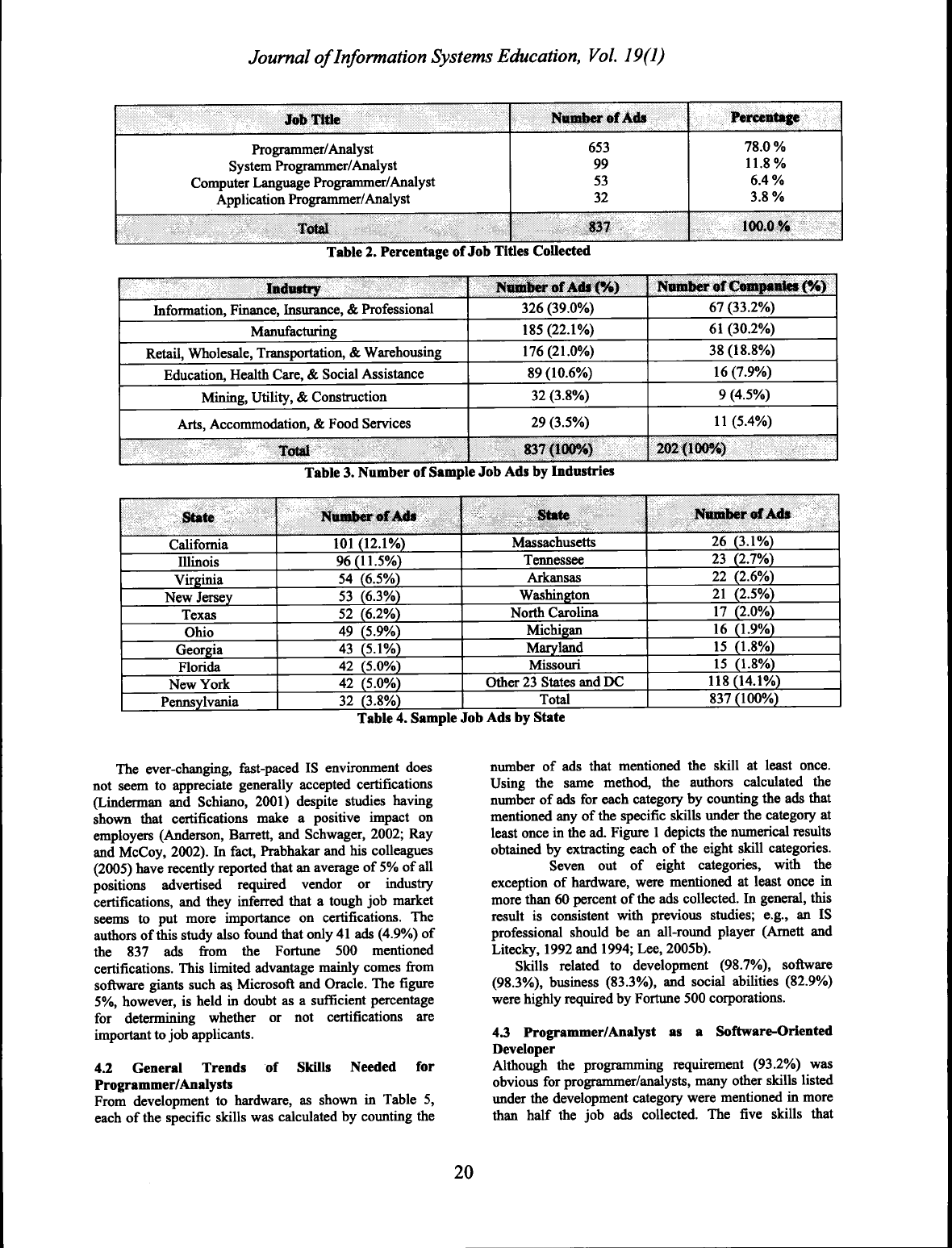
Reproduced with permission of the copyright owner. Further reproduction prohibited without permission.
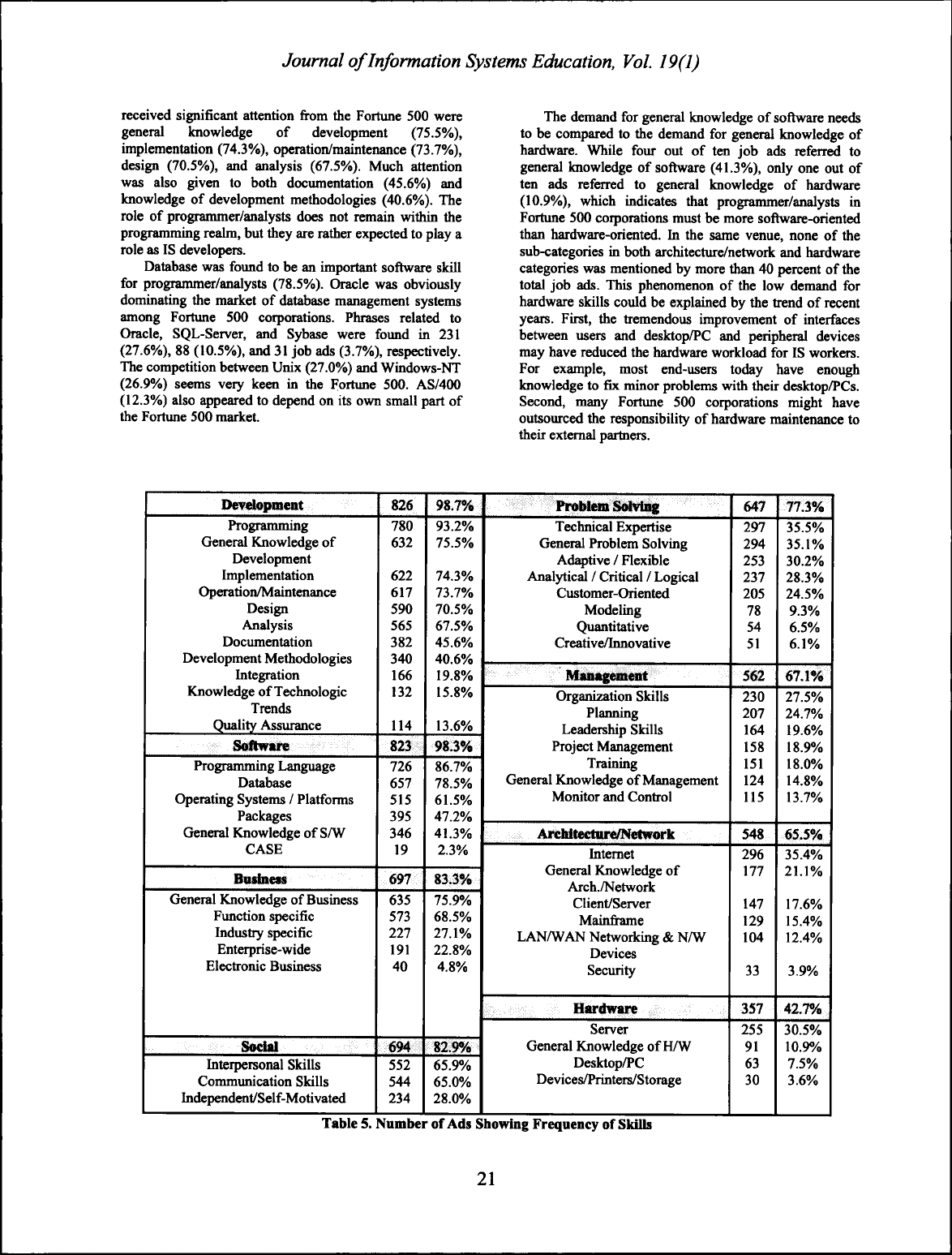
Reproduced with permission of the copyright owner. Further reproduction prohibited without permission.
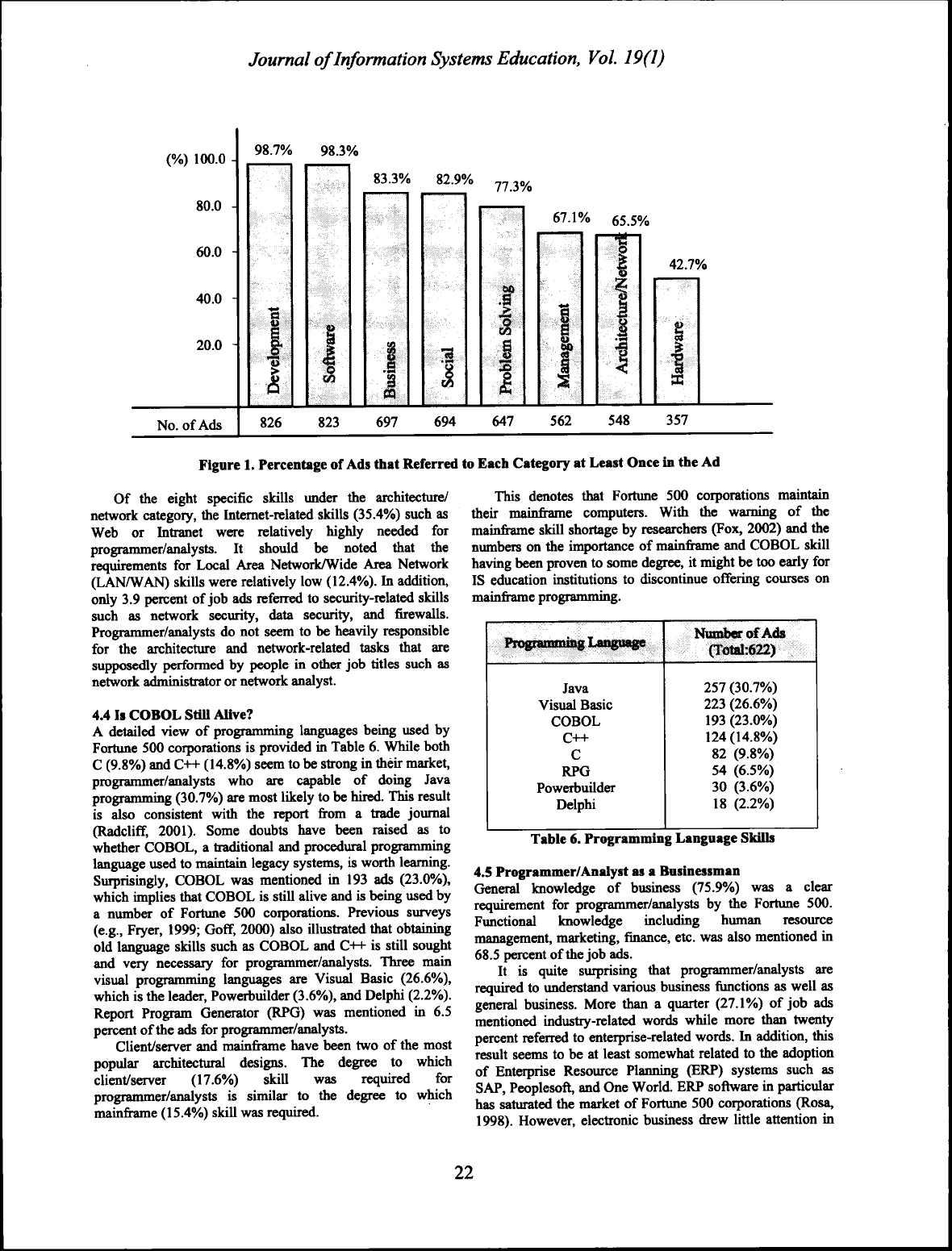
Reproduced with permission of the copyright owner. Further reproduction prohibited without permission.
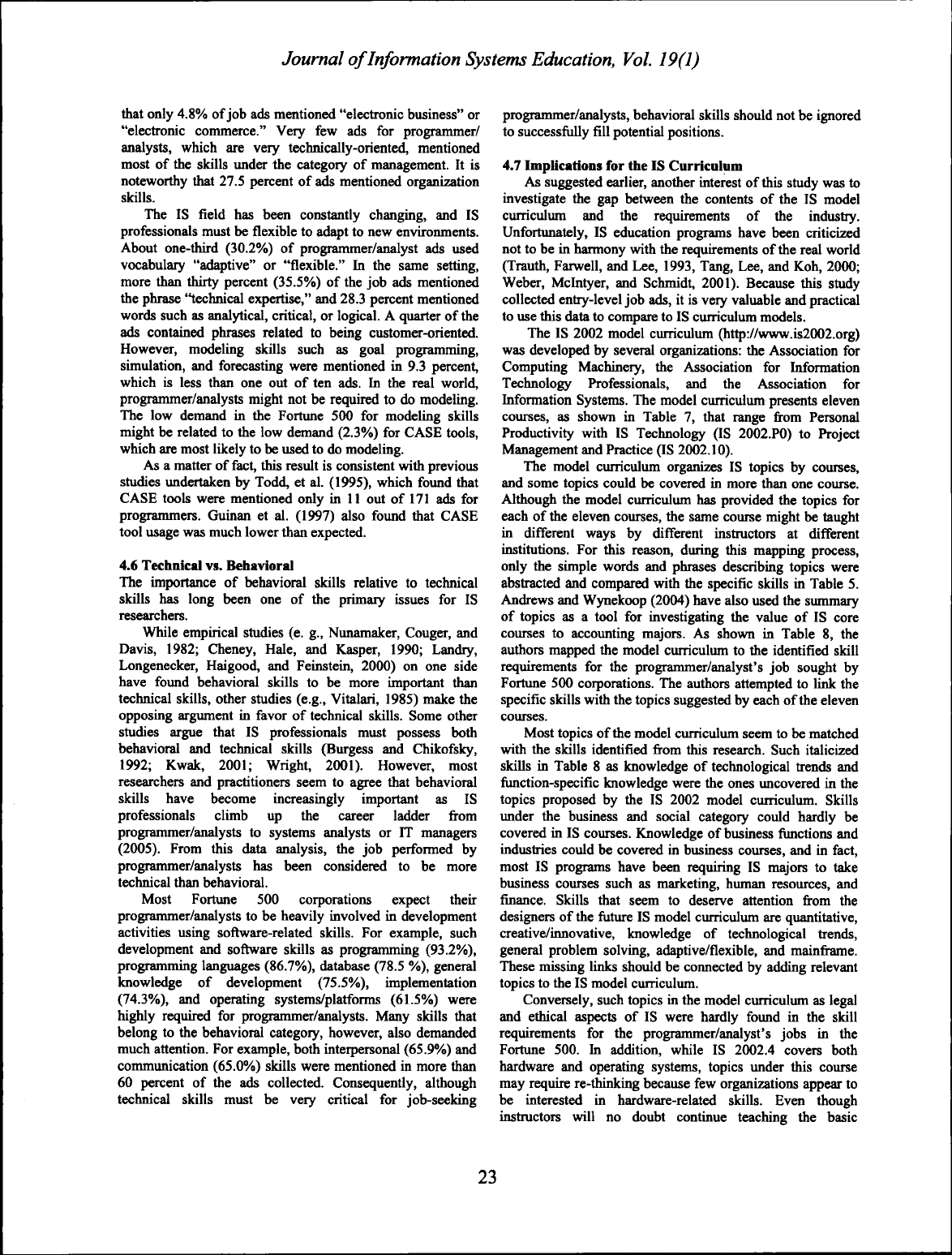
Reproduced with permission of the copyright owner. Further reproduction prohibited without permission.
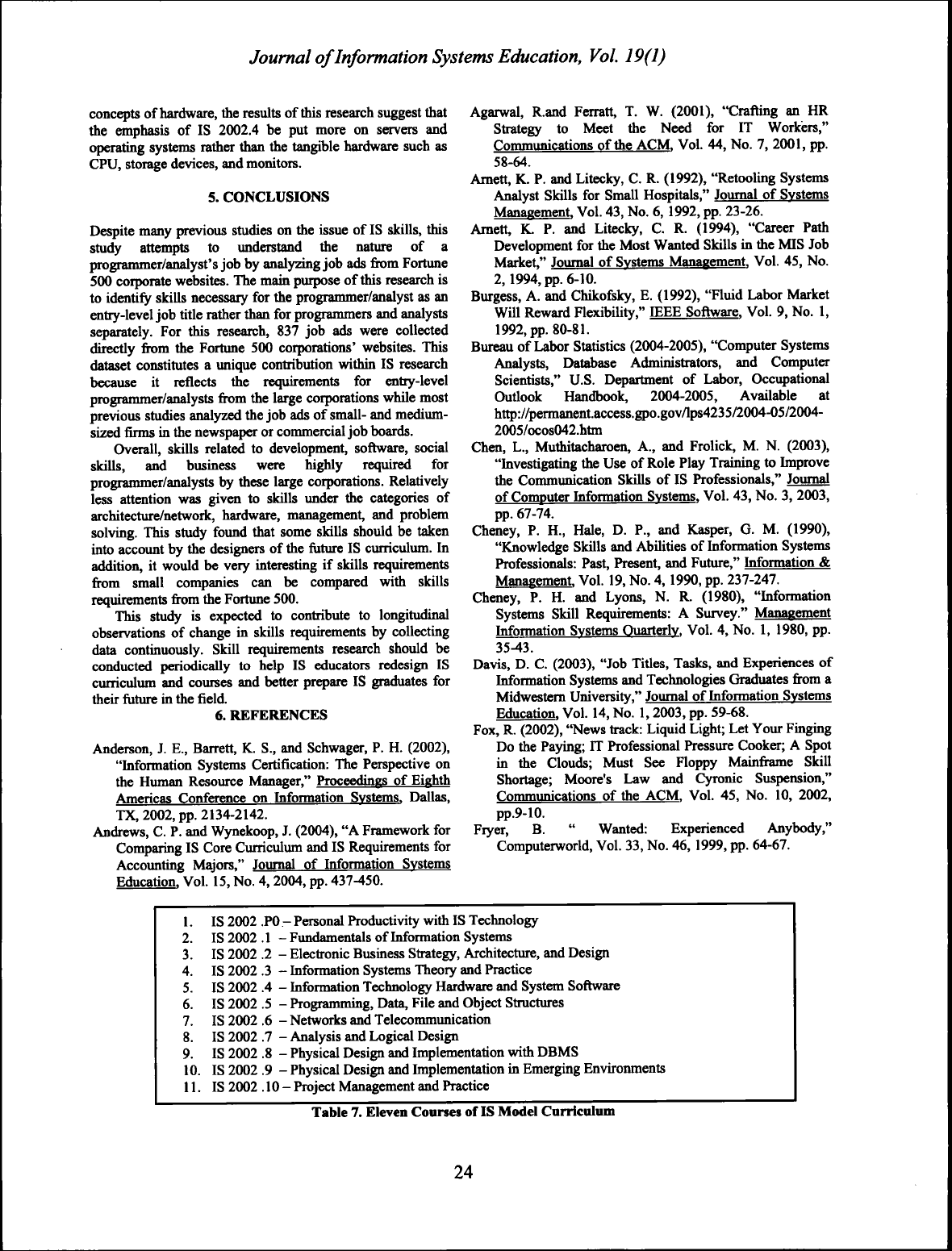
Reproduced with permission of the copyright owner. Further reproduction prohibited without permission.
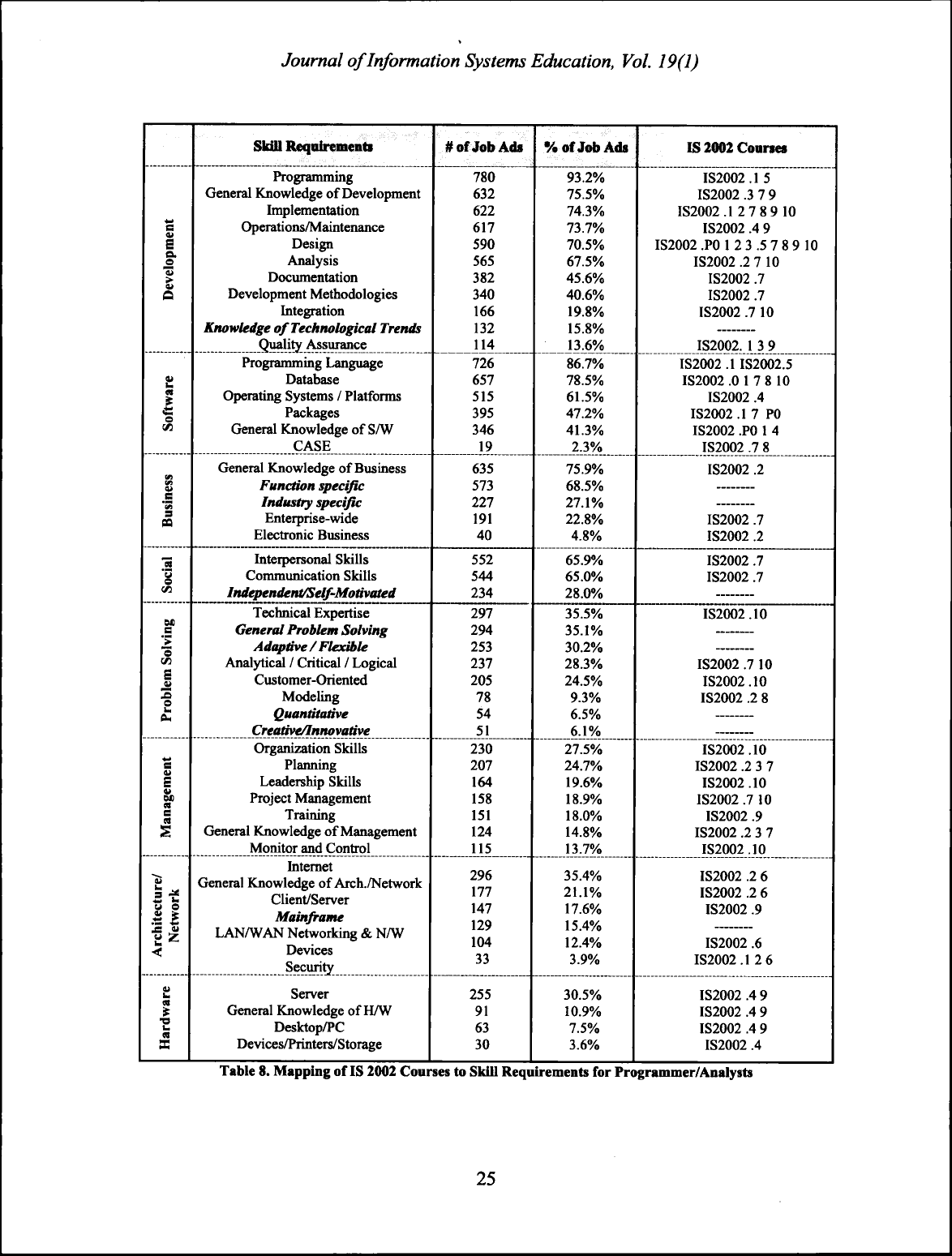
Reproduced with permission of the copyright owner. Further reproduction prohibited without permission.
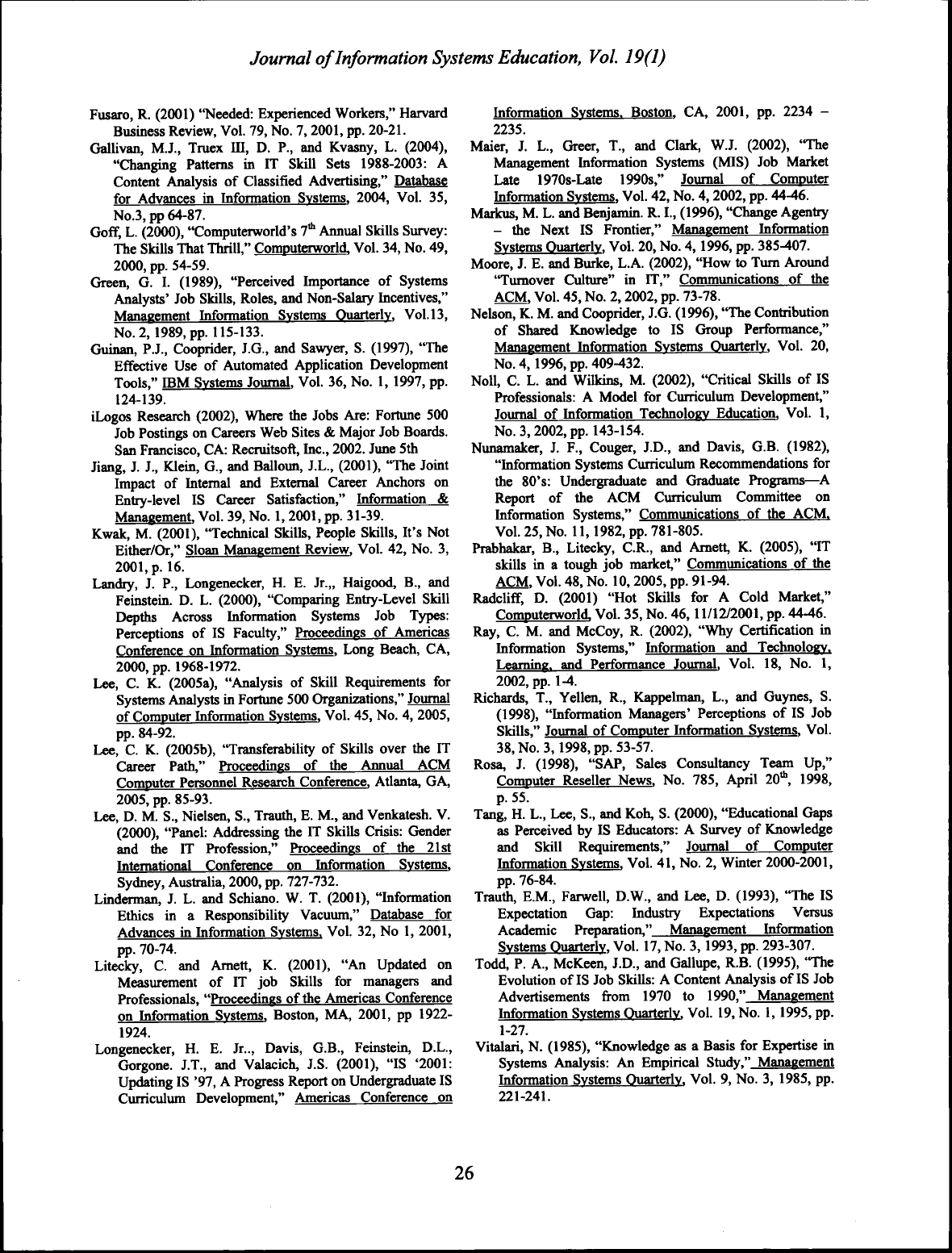
Reproduced with permission of the copyright owner. Further reproduction prohibited without permission.
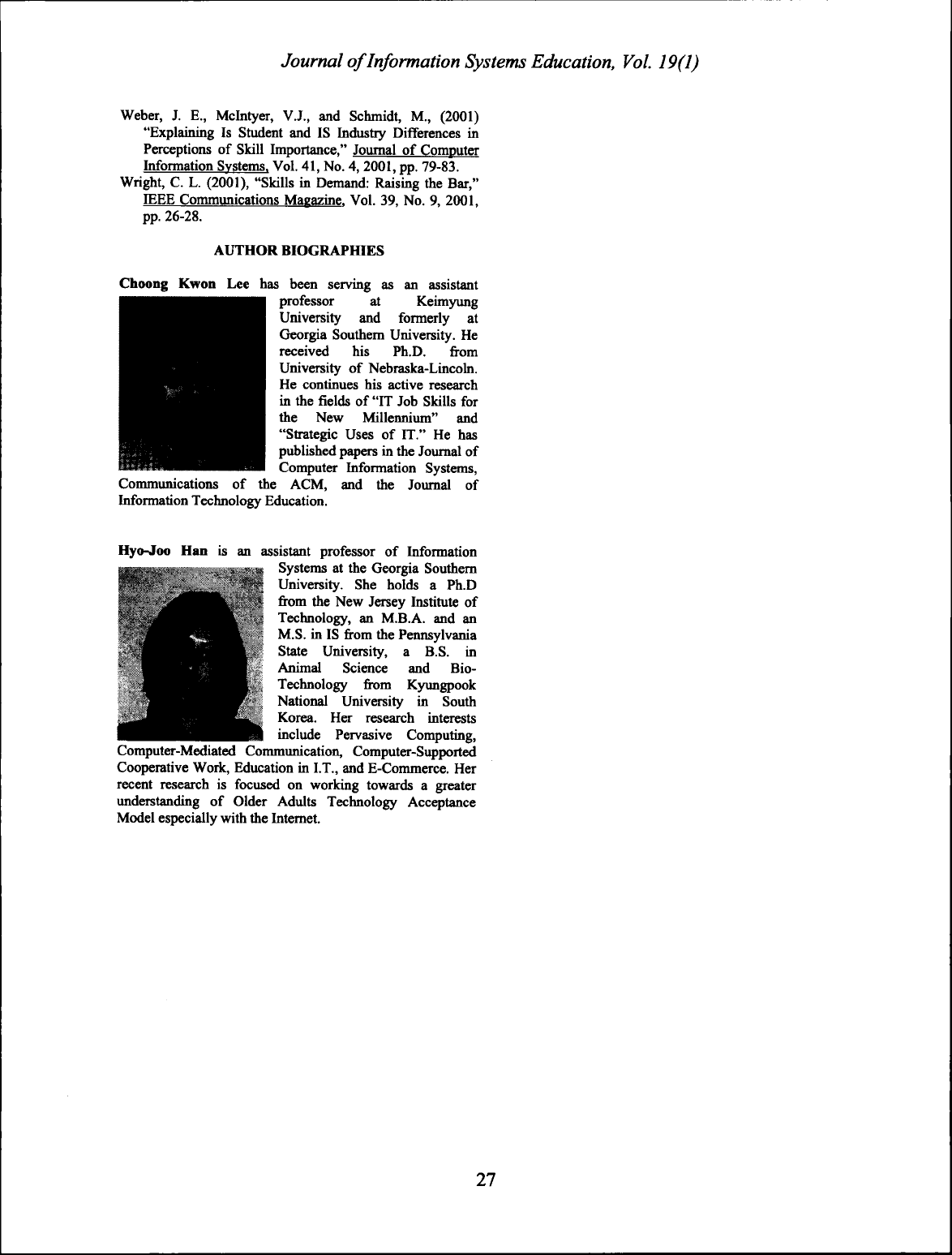
Reproduced with permission of the copyright owner. Further reproduction prohibited without permission.

Information Systems & Computing
Academic Professionals
STATEMENT OF PEER REVIEW INTEGRITY
All papers published in the Journal of Information Systems Education have undergone rigorous peer review. This includes an
initial editor screening and double-blind refereeing by three or more expert referees.
Copyright ©2008 by the Information Systems & Computing Academic Professionals, Inc. (ISCAP). Permission to make digital
or hard copies of all or part of this journal for personal or classroom use is granted without fee provided that copies are not made
or distributed for profit or commercial use. All copies must bear this notice and full citation. Permission from the Editor is
required to post to servers, redistribute to lists, or utilize in a for-profit or commercial use. Permission requests should be sent to
the Editor-in-Chief, Journal of Information Systems Education, editor@jise.org.
ISSN 1055-3096
